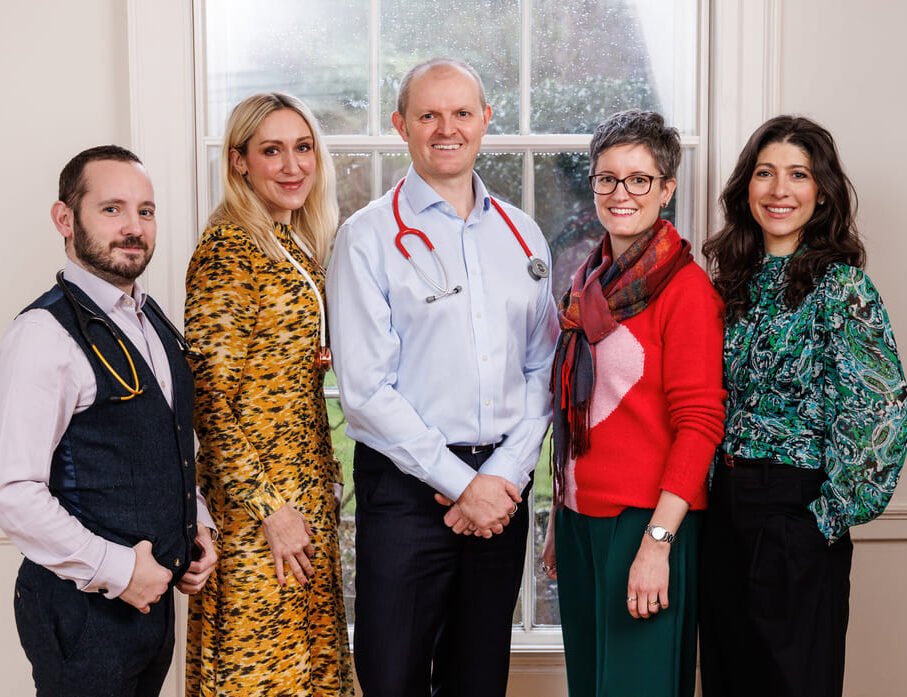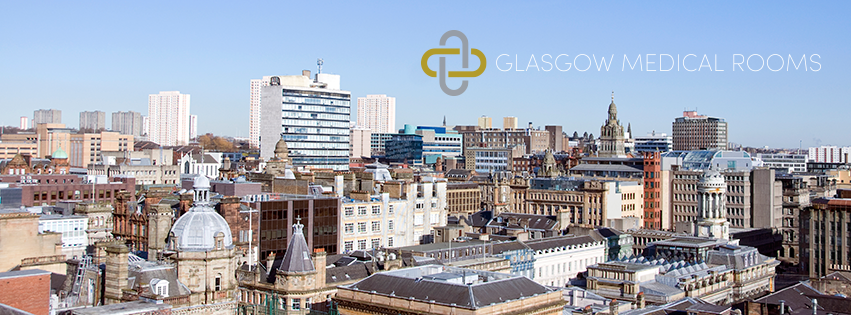Mental Health: How do I get help in the UK when I need it?
The importance of our mental health cannot be undermined, so here are some ways you can get the help you deserve when you may be feeling low.
6 minute readMental health is defined by the World Health Organization (WHO) as, “a state of mental well-being that enables people to cope with the stresses of life, realize their abilities, learn well and work well, and contribute to their community”.
Our mental health impacts all aspects of our lives including our physical health, relationships, social lives, work, and ability to carry out day-to-day tasks.
Mental health issues are common and approximately 1 in 4 people in the UK will experience a mental health problem each year. However, mental health is often perceived as less important than our physical health, as something that can be ignored and overlooked. The stigma attached to having mental health problems persists, making some people reluctant to seek help with their mental health.
In this article, Health Prem looks at what to do if you are worried about your mental health, signs that you may be struggling mentally and what mental health support is available in the UK.
When should I seek help for my mental health?
Mental health issues are largely invisible, which can lead to them being ignored. Add to that the continued stigma attached to mental health issues, particularly among men and those from certain cultural backgrounds, and it’s common for people to struggle with mental health issues alone.
Asking for help with mental health issues can be daunting, but a range of help and support is available for all types of mental health problems, including local NHS services, private treatments, confidential helplines, peer support and phone apps.
Some signs that you may need support with your mental health include:
Worrying more than usual
Finding it hard to enjoy life
Having unpleasant thoughts and feelings such as guilt, sadness, anger, or thoughts of harming yourself or others
Eating or sleeping too much or too little
Irritability, aggression, or lashing out at others
Withdrawing from people and social situations
Not connecting with others
Lack of energy or always feeling tired
Feeling like you have to keep busy
Unexplained physical symptoms, such as stomach aches or headaches
Feeling helpless or hopeless
Excessive smoking, drinking, or using drugs (including prescription medications)
What mental health support is available in the UK?
There are several ways to access help with mental health issues in the UK. The most suitable option for you depends on your preferences, how severe and urgent your symptoms are, and whether you can afford to pay for your treatment.
Accident and Emergency
If you need urgent help with your mental health, for example, if you are thinking of harming yourself or someone else, call 999 or go straight to your nearest A&E department. The A&E staff will put you in contact with your nearest crisis resolution team, a specialist team of mental health professionals who work with people in severe distress.
The NHS also provides urgent mental health helplines 24 hours a day for people of any age in England.
Your GP
In most cases, your GP is your first point of contact for help with mental health issues. Your GP will talk to you about your mental health and decide on the best course of action. They may make a diagnosis and prescribe a treatment such as anti-anxiety medication or antidepressants, refer you for treatment such as talking therapy, or make a referral to specialist mental health services.
Therapy
Therapists are trained professionals who provide help with mental health issues through a range of different therapies. The best type of therapy for you depends on your diagnosis and individual needs. Therapies may include cognitive behaviour therapy (CBT), counselling, behavioural activation, and interpersonal therapy.
There are several ways to access a therapist in the UK:
Self-referral —If you are over 18, registered with a GP and live in England you can access an NHS therapist directly without a referral from your GP.
If you are under 18 you can also access free therapy through Child and Adolescent Mental Health Services (CAMHS). Depending on where you live, you may be able to contact CAMHS directly, or you may need a referral from your GP, school or social worker.
GP referral — You can access therapy by making an appointment with your GP and asking them to refer you for therapy on the NHS.
Charities — many mental health charities offer free or low-cost therapy, listening services and helplines
Work, school, or college — some employers offer free counselling sessions as part of the Employee Assistance Programme (EAP). Most schools, colleges and universities provide a free student counselling service.
Private therapy — If you are unable to access free therapy, or would like to see a therapist quickly, paying for private therapy may be a good option. The BACP Therapist Directory is an online directory of around 16,000 private therapists registered with the British Association for Counselling and Psychotherapy (BACP).
Online therapy — Many online counselling websites offer low-cost therapy via telephone or video link. Though online therapy can be a convenient and affordable option, check that your therapist is qualified and registered with a professional body before starting.
Support groups & peer support
Peer support involves connecting with people with similar mental health problems and experiences to provide support, information, and advice from people who have been through similar experiences. Peer support can be beneficial on its own or in combination with medication or therapy.
Peer support can take various forms such as support groups, either in person or online, or one-to-one peer support, also known as mentoring or befriending where you work towards your goals with one other person.
There are many ways to access peer support including through mental health charities and organisations, locally run groups or online.
Charities and third-party organisations
There are many charities and organisations that offer mental health support. Services range from helplines to access to a range of therapies and support groups.
Some mental health charities in the UK include:
The Samaritans — offer free, confidential emotional support 24 hours a day. Call 116 123 or email jo@samaritans.org.uk.
Shout 85258 — offers a free, confidential text messaging service 24 hours a day and can help with a range of issues including abuse, anxiety, bullying, depression, loneliness, panic attacks, self-harm, and suicidal thoughts. To contact a trained volunteer, text SHOUT to 85258.
Anxiety UK— offers a range of services to help people with anxiety and anxiety-related disorders, including a helpline 03444 775 774 (open from 9:30 am to 5:30 pm Monday to Friday), a text service on 07537 416905 and a chatbot, Ask Anxia, available 24 hours a day seven days a week.
In addition, Anxiety UK offers access to anxiety support groups, a range of resources to help understand and overcome anxiety, discounted anxiety management courses and a range of therapies:
Campaign Against Living Miserably (CALM) — a registered charity that campaigns against suicide by raising awareness, providing online information and advice, and offering a free, confidential anonymous helpline and webchat from 5 pm to midnight 365 days a year.
Mind — campaigns to improve awareness and services for those with mental health issues as well as providing information on types of mental health conditions, where to get help, and legal advice as well as peer support through their online peer community Side by Side
Rethink mental illness — offers practical advice on issues such as mental health treatment, where to access help in your local area, financial, and legal issues. You can call the advice and information helpline on 0808 801 0525 (open from Monday to Friday from 9.30 am to 4 pm), contact an adviser via the webchat (available from Monday to Friday from 10 am to 1 pm) or send an email to advice@rethink.org.
Specialist mental health services
If you have chronic (long-term) or severe mental health problems, or treatment prescribed by your GP isn’t working, you may be referred to a specialist mental health service. These services include a multidisciplinary team of experts that may include a psychiatrist, psychiatric nurse, occupational therapist, counsellors, and social workers.
Specialist services include community mental health teams (CMHTs), social care services, residential care services, and crisis resolution and home treatment teams (CRHTs).
Mental health apps
In recent years, there has been an explosion in mental health applications designed to support mental health and promote wellbeing. Mental health apps vary a lot in terms of price, quality and purpose and it’s important to find an app that is safe, trustworthy, and best suited to your needs.
Some mental health apps recommended by mental health charity Mind include:
Apps for anxiety, stress, worry and low mood:
Wysa: Mental Health Support — an AI chatbot that helps you manage stress, depression, and anxiety.
Feeling Good: Mental fitness — an app to improve wellbeing and support your mental health using music and audio guides.
Holly Health Habit Coach — an AI chatbot that offers support with decisions about sleep, food, exercise, stress, and mental health.
Move Mood — a free app aimed at teenagers that uses behavioural activation therapy (BAT) to help you change thought patterns and behaviour to improve your mental well-being.
Apps for self-harm:
Calm harm — uses dialectical behaviour therapy (DBT) such as breathing techniques, activities to help distract and comfort you, and keeping a diary. There is also a crisis zone if you need immediate help.
Combined Minds — offers help with overcoming anxiety, depression, self-harm and eating disorders by providing activities for young people and their families to do together. You can create a support network of family and friends on the app.
distrAct — offers advice on what to do if you have feelings of self-harm or suicide.
Apps for sleep:
Gro Health uses coaching and an online community to motivate you and support you with your health, including helping you lose weight by tracking your eating habits and providing recipes and educational content, and improving relaxation and sleep using meditation guides and sleeping tips.
Sleepio creates an individualised six-week programme to help clear your mind, reshape behaviours, and improve your sleep.
Apps for general wellbeing:
Lungy: Breathe & Relax Daily — a breathing app that recognises and responds to your breath, making you feel calmer and more relaxed.
Young Carer’s Support App — an app for young and adult carers that provides useful information, self-care tips and links to further support.
Student Health App — provides reliable, trustworthy health information to young adults.
ReziCare —provides information, advice, and support for people diagnosed with cancer and those close to them.
Coggi — aimed at children, Coggi is an immersive augmented reality app that helps improve wellbeing and help with challenging life experiences such as hospital procedures.
Summary
It can be difficult to ask for help with our mental health, but good mental health is essential for our overall health and well-being. Mental health support is available in a variety of forms including through your GP, private therapists, support groups, online counselling, and wellbeing applications.
If you haven’t been feeling yourself lately and feel you would benefit from advice and support with your mental health, reach out for help and take the first step in improving your mental health, overall well-being, and quality of life.









